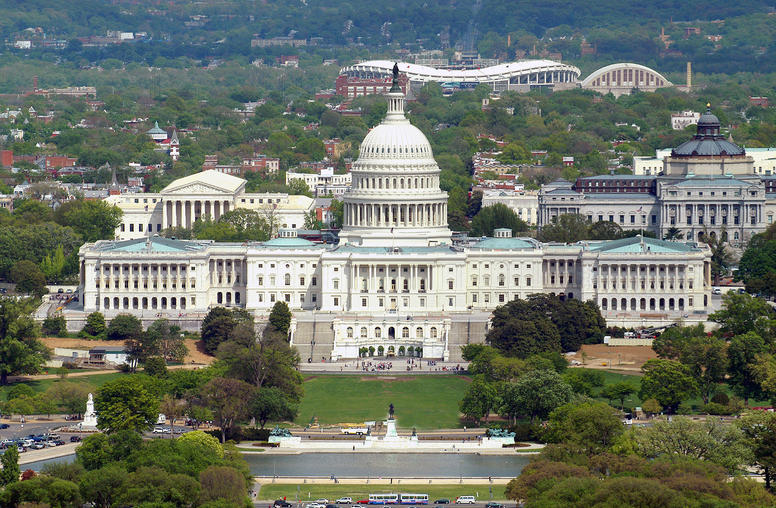Question And Answer
Publications
Articles, publications, books, tools and multimedia features from the U.S. Institute of Peace provide the latest news, analysis, research findings, practitioner guides and reports, all related to the conflict zones and issues that are at the center of the Institute’s work to prevent and reduce violent conflict.

China in Peru: The Unspoken Costs of an Unequal Relationship
China’s political and economic influence in Latin America has increased dramatically since the turn of the century. This is especially true in resource-rich countries like Peru, where China has channeled billions of dollars of investment into the oil and mining sectors. This report takes a critical look at the narrative that closer engagement with China is the key to Peru’s future economic development and prosperity, and suggests ways that US agencies, corporations, and NGOs can support Peruvians’ efforts to create a more equitable balance in their country’s relationship with China.

Kenya’s Crisis Shows the Urgency of African Poverty, Corruption, Debt
Kenya’s public protests and deadly violence over proposed tax increases this week highlight some of the country’s most serious challenges: high youth unemployment, deepening poverty and the glaring gap between living conditions for the country’s elite and its urban poor. This social crisis is exacerbated by severe corruption, a stifling foreign debt and a too-violent response by Kenyan police, who have a poor record in handling large demonstrations. Steps to calm this crisis are vital to preserve Kenya’s overall stability, its role as an East African trade hub — and its capacity to serve as a leader for peace, which the United States increasing has relied upon in Africa and elsewhere.

Russia’s Disinformation Targets Moldova’s Ties with Europe
Moldova is at war with Russia, even though not a single shot has been fired. This conflict, which Romanian-speaking Moldovans call a “razboi hibrid” (hybrid war), poses risks to Moldova and its Eastern European neighbors not unlike a traditional shooting war. As Moldova and Ukraine began separate talks last week to join the European Union, the government of Russian President Vladimir Putin has escalated its campaign of disinformation and political interference to derail Moldovans’ European and democratic aspirations. Moscow is targeting a critical decision point for Moldova: national elections and a plebiscite on EU membership over the next 13 months.

Dean Cheng on China’s Expanding Space Capabilities
China’s successful trip to the far side of the moon — the first nation to accomplish the feat — is not only “great advertising” for potential technology partnerships, it’s “part of the larger Chinese space effort” that seeks to expand China’s own dual-use capabilities in space, says USIP’s Dean Cheng.

10 Years After ISIS’s Genocide, Iraq Is Still Dealing with the Human Legacies
This year marks the 10-year anniversary of ISIS’ capture of a third of Iraqi and Syrian territory and genocide against the Ezidis (Yazidis) and other communities. Supported by the U.S.-led Global Coalition to Defeat ISIS, Iraq declared military victory over the terrorist group in December 2017 and has significantly reduced and controlled the threat ever since. Significant progress has also been made in the recovery and stabilization process, with the successful return to their areas of origin of some five million of the six million Iraqis internally displaced by the conflict and the rebuilding of many of the regions that the conflict devastated.

NATO at 75: Time for Celebration — and Sobriety
Leaders from across Europe and North America will gather in July in Washington to commemorate the 75th anniversary of the North Atlantic Treaty Organization (NATO). The meeting will be a chance to celebrate NATO’s accomplishments as an alliance as well as the improvements it has made since the start of the Ukraine war. But it should also be a gut-check on the real state of NATO capabilities at a time of renewed geopolitical rivalry and attendant mounting dangers worldwide. A strong NATO is as essential for U.S. national security and international peace today as it was 75 years ago. But we have a long way to go before NATO can live up to its full potential in the turbulent new era that is unfolding.

Putting Data Around Intergroup Violence and Sorcery Accusation–Related Violence in Papua New Guinea
This discussion paper provides analysis of newspaper reports from Papua New Guinea around two different but interconnected forms of violence: intergroup violence and sorcery accusation–related violence. The authors conclude that both types of violence are fueled by money politics, the widespread availability of guns and the normalization of violence, the erosion of traditional and local forms of leadership and regulation, and public service delivery failures.

Examining the 2024 Annual Trafficking in Persons Report: Progress over Politics
Jason Tower, country director for the Burma program at the U.S. Institute of Peace, testified on July 9, 2024, before the U.S. House Foreign Affairs Committee Subcommittee on Global Health, Global Human Rights and International Organizations’ hearing on “Examining the 2024 Annual Trafficking in Persons Report: Progress over Politics.”

What You Need to Know About Iran’s Election and New President
In a clear challenge to regime hardliners, Masoud Pezeshkian, a reformist and cardiac surgeon, won Iran’s snap presidential election on July 5. The elections were called after President Ebrahim Raisi died in a helicopter crash on May 19. The runoff had been considered a tight race, but Pezeshkian won decisively with almost three million more votes than Saeed Jalili, a hardliner and former nuclear negotiator. Due to take office in August, Pezeshkian, a former deputy speaker of parliament and health minister, will take power as Iran’s government faces legitimacy challenges amid an economic crisis.